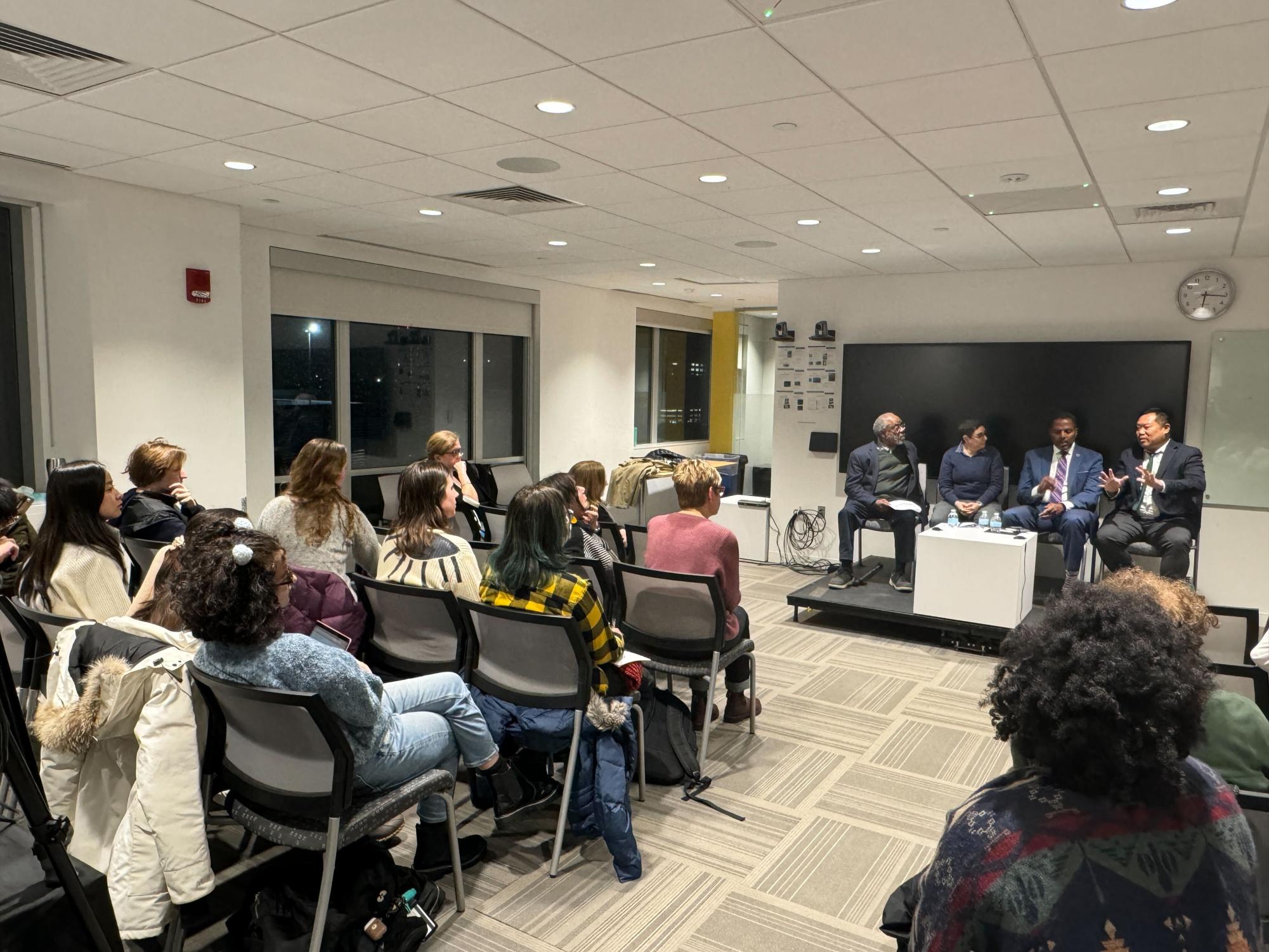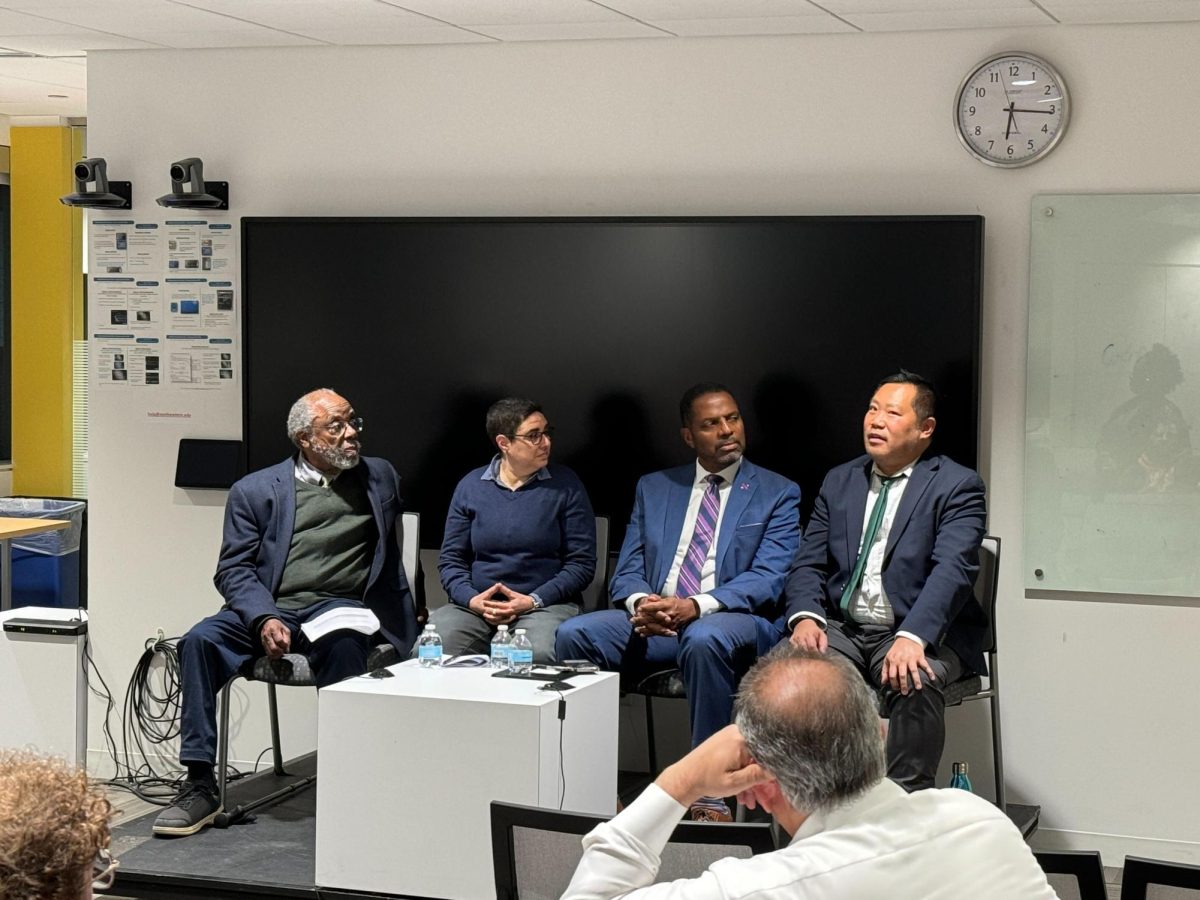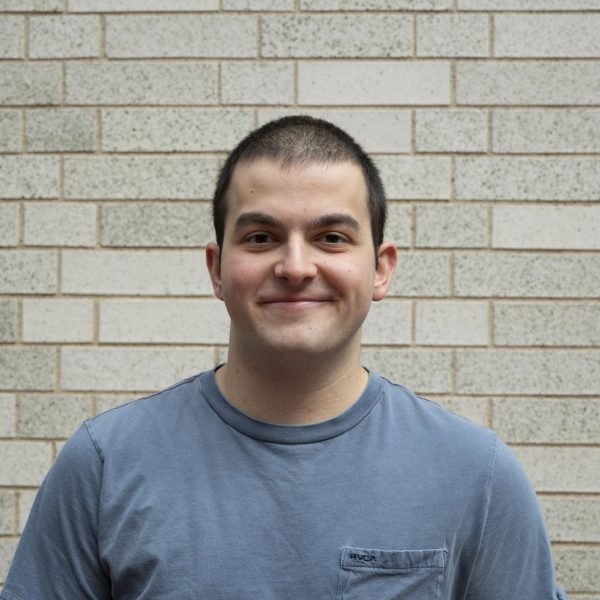On Jan. 16, the College of Social Sciences and Humanities held a session of its “Civility Series” titled “Northeastern Reflects: The State of Affirmative Action, the State of Belonging” to “discuss and debate creative paths forward on diversity, equity, and belonging.”
The event, which discussed how the university would move forward after the Supreme Court ruled in June 2023 that race-based admissions programs were unconstitutional, is part of a larger conversation taking place among university administrators nationally as schools and students grapple with keeping diversity on campuses intact.
“Many of us are beneficiaries of decades of affirmative action … and we’re clearly at a turning point in the history of the application of affirmative action rules and procedures,” said Ted Landsmark, panel moderator and distinguished professor of public policy and urban affairs.
Libby Adler, a panelist and professor of law and women’s, gender, and sexuality studies, focused her opening speech on the legal side of the issue.
“The court really failed in its most basic responsibility, which is to tell us what is and what is not legal,” Adler said. “There’s the problem of the opinion saying that discussion of race is allowed in an application essay but not in such a way as to circumscribe the holding of the decision.”
The ruling is too ambiguous for universities to apply consistently and leaves space for admissions boards to try various methods until and if they are found to be unconstitutional, Adler said.
The same issue came up in a discussion of the decision by Chief Enrollment Officer Satyajit Dattagupta in a November faculty senate meeting, where Dattagupta pointed out the delicate difference between using a student’s personal essay but not as a “proxy” for race.
Karl Reid, senior vice provost and chief inclusion officer, was also a featured panelist at the event and spoke about his experience at Northeastern instituting diversity, equity, inclusion and belonging initiatives.
“I am a proud product of affirmative action,” Reid said. “I don’t think I would have received an opportunity to get into [Massachusetts Institute of Technology] and Harvard based on my scores alone. There was a much more holistic assessment of who I was.”
Reid and his office conducted the 2021 Diversity and Equity Climate Survey Report and are now producing the 2023 edition, titled “Many Voices, One Northeastern.” The 2023 survey, set to come out early 2024, assessed the extent to which students, faculty and staff feel respected and included at Northeastern.
“My fear is that this decision will have an insidious effect on the climate of inclusion and the feeling of belonging that people of color and other historically marginalized groups experience now and for the foreseeable future,” Reid said. “I am concerned that institutions are backing off on their commitments to welcome diversity.”
Reid said he hoped the university will use avenues left open by the court’s decision to maintain resources and opportunities for students of color, such as scholarships and programs for marginalized groups.
Matt Lee, the third featured panelist and teaching professor of human services, said he’s noticed an increase in students asking questions about college funding and resource allocation for minority staff and students.
“[Students] are asking questions not only about the admissions process but about what’s next,” Lee said. “You want to make sure that any student who gets to that university feels a sense of belonging.”
Lee said that he’s also observed students express fear about disappearing opportunities and resources for students of color. This trend can be addressed by creating a space to speak about those emotions in the classroom without judgment, he said.
Landsmark then asked the panel what specific policies and next steps they would recommend Northeastern implement to replace affirmative action.
“In terms of policies … we have to be smart. We are making a commitment at Northeastern that a diverse student body makes us better,” Reid said. “How we operationalize that … that’s a chance for us to be creative.”
One of Reid’s recommendations was to examine the precedent set by institutions in the nine states that banned affirmative action prior to the Supreme Court’s federal ruling and the creative practices they implemented to maintain a diverse institution after seeing a precipitous drop in enrollment of minority students. Similarly, he suggested research on the effect of the judicial decision to reveal a quantifiable effect on the student body.
Adler suggested institutions review other metrics they use to evaluate prospective students in order to root out other forms of bias in the admissions process, such as standardized testing and legacy admission.
“I would love to see leading institutions start to have a dialogue that gets us a robust critique and reevaluation of merit,” Adler said. “There is no neutral way to do university admissions. You choose what merit is — it’s a political choice and it has distributive consequences.”

Landsmark’s final question to the panel focused on Northeastern’s global presence, specifically how the decision will affect global recruitment. Reid suggested that, if at all, it would affect the undergraduate population because of the high application rate the university is seeing.
“Last I heard, we had something in the order of 96,000 [or] 98,000 applications for about 2,800 undergraduate slots,” Reid said. “It’s both [good for] the university … but it creates these challenges because we are becoming more and more selective.”
As far as the graduate and doctoral populations, Reid said, international students in those programs have expressed concerns about a lack of space and community.
“I hosted an event at the office of diversity, equity and inclusion. Twenty-five masters and PhD Indian students showed up … [and] the sociologist in me started to interview them. They said, ‘We don’t have a place. We don’t have a community,’” Reid said. “If you’re ever near Panera Bread at the end of the day, that’s the community. We need to do better as an institution, we need to really build that community.”
Samira Saad, a third-year politics, philosophy, and economics major, asked whether universities and higher education institutions outside of Northeastern have a “willingness” to institute creative policies to maintain diversity in incoming classes.
“Maybe there are universities who don’t have such a profound stake in the prestige hierarchy of higher education that will be willing to make some moves,” Adler said. “Right now, the incentives are really perverse. U.S. News & World Report is the bane of the higher educational system in my view.”
Communication from the university about moving forward from this ruling has carried similar themes of overarching direction without concrete information regarding the implementation of specific policies. In an email to students shortly after the decision was released, President Joseph E. Aoun reaffirmed Northeastern’s commitment to diversity, but stated that the Supreme Court’s decision will “dramatically alter” how race is considered in college admissions.
“We’re at a pivot point in American history. A point that will be transformative for who is participating in higher education and the corporate world,” Landsmark said. “[We’re at] a pivot point in terms of how we talk about and think about becoming an increasingly inclusive society within the United States.”

















